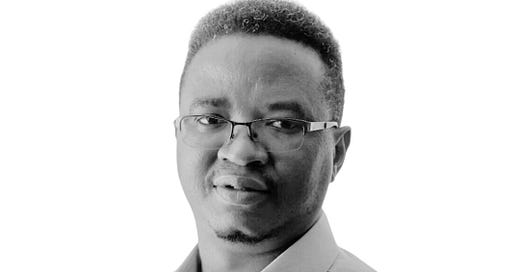Welcome to “Global Witness, Globally Reimagined,” where we dream about mission in a postcolonial world. Every Thursday, I share one thought that has spoken to me in the week, some resources that I trust will be helpful to you, and three exciting quotes about mission to give you something to think about. I pray one of these will energise you in the coming week.
1. Thought I Can’t Shake Off
At a recent mission conference in Africa, I sat through a sermon (disguised as a seminar paper) that sought to mobilise Africans to be drafted into God’s army, to join the missions force, and to let God deploy them to the trenches on the frontline where they can make a surprise attack on the enemy. The entire sermon sounded like an Army General was speaking to his cadets about an ongoing war somewhere within the 10/40 Window. When I tried to raise a concern, I was forcefully informed that “mission is warfare,” and that “as missionaries, we pull down strongholds” for God. As a matter of fact, I was rebuked for forgetting that “the kingdom of God suffers violence, and the violent take it by force.” I was told they were planning to send a battalion of young men and women as missionaries to occupy—like an occupying force—a city near me.
While I appreciated their zeal, I wondered whether they would care to know that this military language does not belong in mission in the twenty-first century. Especially in Africa, where this military-speak is, without a doubt, foreign, a humbler posture and language would make sense. (I cannot imagine my rural Malawian friends saying, “we are soldiers for Christ” in Chichewa; it just doesn’t sound right). This combative and violent language does not do justice to the gospels and to the work that Christ left for us. We shape our words and our words shape us. When we speak of ourselves as missionary-soldiers, this is how we engage those we evangelise; with an intent to conquer. Of course, even though “Onward Christian Soldiers” is a great hymn, it does not make theological, missiological or even cultural sense where I come from. Evangelism by conquest is a thing of the past. Today, we understand mission as peacemaking, especially in a year of mad violence. Just like we do not talk about “evangelistic crusades” anymore, let us move on from the colonial images of missionaries as conquerors.
Blessed are the peacemakers.
Full disclosure: my favourite pastime at African mission conferences is watching African leaders behave as if they were Westerners.
2. Resources I am Enjoying
Book Title: Towards African Missiology: Issues of New Language for African Christianity by Francis Anekwe Oborji (Bloomingtom, IN: Xlibris, 2020).
In this first of a two-book series, Oborji highlights African Christians’ contributions to the mission of God. It is a collection of works by assorted scholars that provide a contextualised perspective on the scope of missiology. The authors are concerned about a more fitting and new language for mission in Africa. Indeed, they argue that Africans are generally not seen as counterparts in God’s mission with their Western colleagues. So, they propose a fresh language for missiology in Africa that will not just acknowledge the humanness of Africans but also allow Africans to blossom. In other words, such language must emerge from a place of respect and approval rather than sympathy or condescendence. It must take into account Africa’s cultural uniqueness, realities, and lifestyle in the face of secularisation and postmodernity. The missiological insights in this book are, indeed, worth paying attention to, especially for anyone seeking to leverage partnerships to further realise God’s mission in this age of global Christianity.
3. Quotes I am Pondering
There is no doubt that the missio Dei is one of the overarching theological concepts that interlaces the biblical story into a single story. It is a story of a missional God who calls people to be with him on a mission. — Gift Mtukwa
Theology must be relevant to the context in which it is being taught and applied, and this obviously means that an African Christian theology would raise questions that a Christian theology from a different environment would not. — Elizabeth Mburu
The Missionary Paradigm holds that African Christianity is challenged in the use of Scripture, the use of Christian tradition, and the classic role and office of the pastor. Yet the problem any Christian or pastor faces is the lack of contextualization in the use of Christian beliefs, Scripture, and Christian tradition in daily life …. Ndung’u Ikenye
I pray that you will be faithful to the mission God has for you this week.





Oof this is good – thank you for writing this. And I chuckled at your favourite pastime.
Another great post--I take it these speakers were not American, but imitators of that? All of that militaristic language is of course very American...